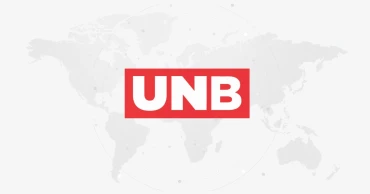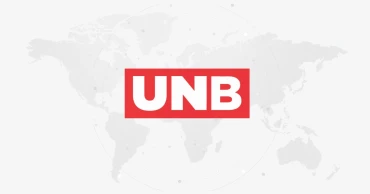Quad Summit
Australia rules out Quad summit going ahead in Sydney without Biden, but Modi still plans visit
Australian Prime Minister Anthony Albanese has ruled out a so-called Quad summit taking place in Sydney without President Joe Biden, saying the four leaders will talk at the Group of Seven meeting this weekend in Japan.
Albanese said Wednesday he understands why Biden pulled out of the summit to focus on debt limit talks in Washington since they are crucial to the economy. The summit including Indian Prime Minister Narendra Modi and Japanese Prime Minister Fumio Kishida had been scheduled for May 24.
“The blocking and the disruption that’s occurring in domestic politics in the United States, with the debt ceiling issue, means that, because that has to be solved prior to 1st June — otherwise there are quite drastic consequences for the U.S. economy, which will flow on to the global economy — he understandably has had to make that decision,” Albanese told reporters.
Biden “expressed very much his disappointment” at being unable to come to the Sydney summit and to the national capital Canberra a day earlier to address Parliament, Albanese said.
The four leaders will soon be together in Hiroshima, Japan, for the Group of Seven summit and are planning to meet there, he said.
Also Read: Quad voices deep concern at "deteriorating situation" in Myanmar
“The Quad is an important body and we want to make sure that it occurs at leadership level and we’ll be having that discussion over the weekend," Albanese said.
He said Modi will visit Sydney next week, noting the Indian leader was scheduled to give an address to the Indian diaspora at a sold-out 20,000-seat stadium on Tuesday. But Kishida will not visit.
Also Read: Quad FMs, wary of China’s might, push Indo-Pacific option
“Prime Minister Modi will be here next week for a bilateral meeting with myself. He will also have business meetings, he’ll hold a very public event ... in Sydney,” Albanese told Australian Broadcasting Corp.
“I look forward to welcoming him to Sydney,” Albanese said. “Prime Minister Kishida of Japan was just coming for the Quad meeting. There wasn’t a separate bilateral program.”
Also Read: Beijing wants Dhaka not to join Quad
Albanese said it was “disappointing” that Biden decided he could not come.
“The decision of President Biden meant that you can’t have a Quad leaders’ meeting when there are only three out of the four there,” Albanese said.
2 years ago
Modi leaves for US to attend first in-person Quad Summit
Indian Prime Minister Narendra Modi on Wednesday left for the US to attend the first in-person Quad Summit and hold face-to-face talks with President Joe Biden in Washington DC.
The Quad, acronym for the Quadrilateral Security Dialogue, is an informal strategic group of four nations -- the US, Australia, Japan and India. The Quad was formed in 2007 as a counterbalance to China in Asia.
In his departure statement, the Indian PM said that his meeting with President Biden, Prime Minister Scott Morrison of Australia and PM Yoshihide Suga of Japan would provide an opportunity to take stock of the outcomes of a virtual summit in March.
Read: Modi to attend first in-person Quad Summit in US next week
"My visit to the US would be an occasion to strengthen the Comprehensive Global Strategic Partnership with USA, consolidate relations with our strategic partners - Japan and Australia - and to take forward our collaboration on important global issues."
Modi added: "I will also meet Prime Minister Morrison of Australia and Prime Minister Suga of Japan to take stock of the strong bilateral relations with their respective countries and continue our useful exchanges on regional and global issues."
The meeting of the Quad leaders is slated for September 24 in Washington DC amid the growing humanitarian crisis in Afghanistan after the return of the Taliban.
During his three-day US visit, Modi is also scheduled to meet President Biden and Vice President Kamala Harris and also address the General Debate of the United Nations General Assembly (UNGA) on September 25 in New York.
"At the invitation of @POTUS @JoeBiden, I am visiting USA to continue our dialogue, and exchange views on areas of mutual interest. Also looking forward to meet @VP @KamalaHarris to discuss global issues and explore ideas for cooperation...," the Indian PM said in a separate tweet.
Read: Afghanistan, terrorism, Indo-Pacific, climate change on Modi's US trip agenda
About his UN General Assembly address, Modi said he would focus on "pressing global challenges", such as the pandemic, and the need to tackle terrorism and climate change.
The Indian PM's visit to the US comes over a month after the Taliban takeover of Afghanistan. In fact, India was among several countries that evacuated their diplomatic staff from Kabul when the Taliban took over Kabul on August 15.
However, two weeks later, India began direct communication with the Taliban, with the country's envoy in Qatar Deepak Mittal holding talks with Sher Mohammad Abbas Stanekzai, the head of the Taliban's Political Office in the Gulf state.
At the meeting, Ambassador Mittal had raised India's concern that Afghanistan's soil should not be used for anti-Indian activities and terrorism in any manner, to which Stanekzai assured him that these issues would be positively addressed, according to the Ministry of External Affairs.
Read: Mamata slams Modi govt as nephew summoned over coal scam
"Discussions focused on safety, security and early return of Indian nationals stranded in Afghanistan. The travel of Afghan nationals, especially minorities, who wish to visit India also came up."
The Taliban returned to power in Afghanistan on August 15, with the US troops ending their 20-year military presence in the South Asian country.
India is particularly worried about the implications of the US withdrawal from Afghanistan, given it has already infused over three billion USD worth development aid into that country and the horrific memories of the Taliban's role in the hijacking of an Indian airliner in 1999.
4 years ago
Modi to attend first in-person Quad Summit in US next week
Indian Prime Minister Narendra Modi will attend the first in-person Quad Summit to be hosted by President Joe Biden in the US on September 24 amid the growing humanitarian crisis in Afghanistan after the return of the Taliban.
The Quad, acronym for the Quadrilateral Security Dialogue, is an informal strategic group of four nations -- the US, Australia, Japan and India. The Quad was formed in 2007 as a counterbalance to China in Asia.
In a statement, the Indian External Affairs Ministry Tuesday said that the Quad leaders will review the progress made since their first virtual Summit held on March 12 and "discuss regional issues of shared interest".
"They will also exchange views on contemporary global issues such as critical and emerging technologies, connectivity and infrastructure, cyber security, maritime security, humanitarian assistance/disaster relief, climate change and education."
Read: It's very regrettable, says FM on China's Quad remarks
The leaders of Australia, India, Japan and the United States will also review the Quad Vaccine initiative which was announced in March this year, the Ministry said.
"The Summit would provide a valuable opportunity for dialogue and interactions among the Leaders, anchored in their shared vision of ensuring a free, open and inclusive Indo-Pacific region," it added.
The Indian Prime Minister is also scheduled to address the General Debate of the United Nations General Assembly (UNGA) on September 25 in New York, according to the Foreign Ministry.
The Indian Foreign Ministry's statement comes after White House press secretary Jen Psaki confirmed the date of the Quad Leaders Summit late on Monday night.
"US President Joseph R Biden, Jr will host the first-ever Quad Leaders Summit at the White House on September 24. President Biden is looking forward to welcoming to the White House Prime Minister Scott Morrison of Australia, Prime Minister Narendra Modi of India, and Prime Minister Yoshihide Suga of Japan," Psaki said.
"Hosting the leaders of the Quad demonstrates the Biden-Harris Administration's priority of engaging in the Indo-Pacific, including through new multilateral configurations to meet the challenges of the 21st century."
India was among several countries that evacuated their diplomatic staff from Kabul when the Taliban took over the Afghan capital on August 15.
Read: Beijing wants Dhaka not to join Quad
However, two weeks later, India began direct communication with the Taliban, with the country's envoy in Qatar Deepak Mittal holding talks with Sher Mohammad Abbas Stanekzai, the head of the Taliban's Political Office in the Gulf state.
At the meeting, Ambassador Mittal had raised India's concern that Afghanistan's soil should not be used for anti-Indian activities and terrorism in any manner, to which Stanekzai assured him that these issues would be positively addressed, according to the Ministry of External Affairs.
"Discussions focused on safety, security and early return of Indian nationals stranded in Afghanistan. The travel of Afghan nationals, especially minorities, who wish to visit India also came up."
The Taliban returned to power in Afghanistan on August 15, with the US troops ending their 20-year military presence in the South Asian country.
India is particularly worried about the implications of the US withdrawal from Afghanistan, given it has already infused over three billion USD worth development aid into that country and the horrific memories of the Taliban's role in the hijacking of an Indian airliner in 1999.
4 years ago




